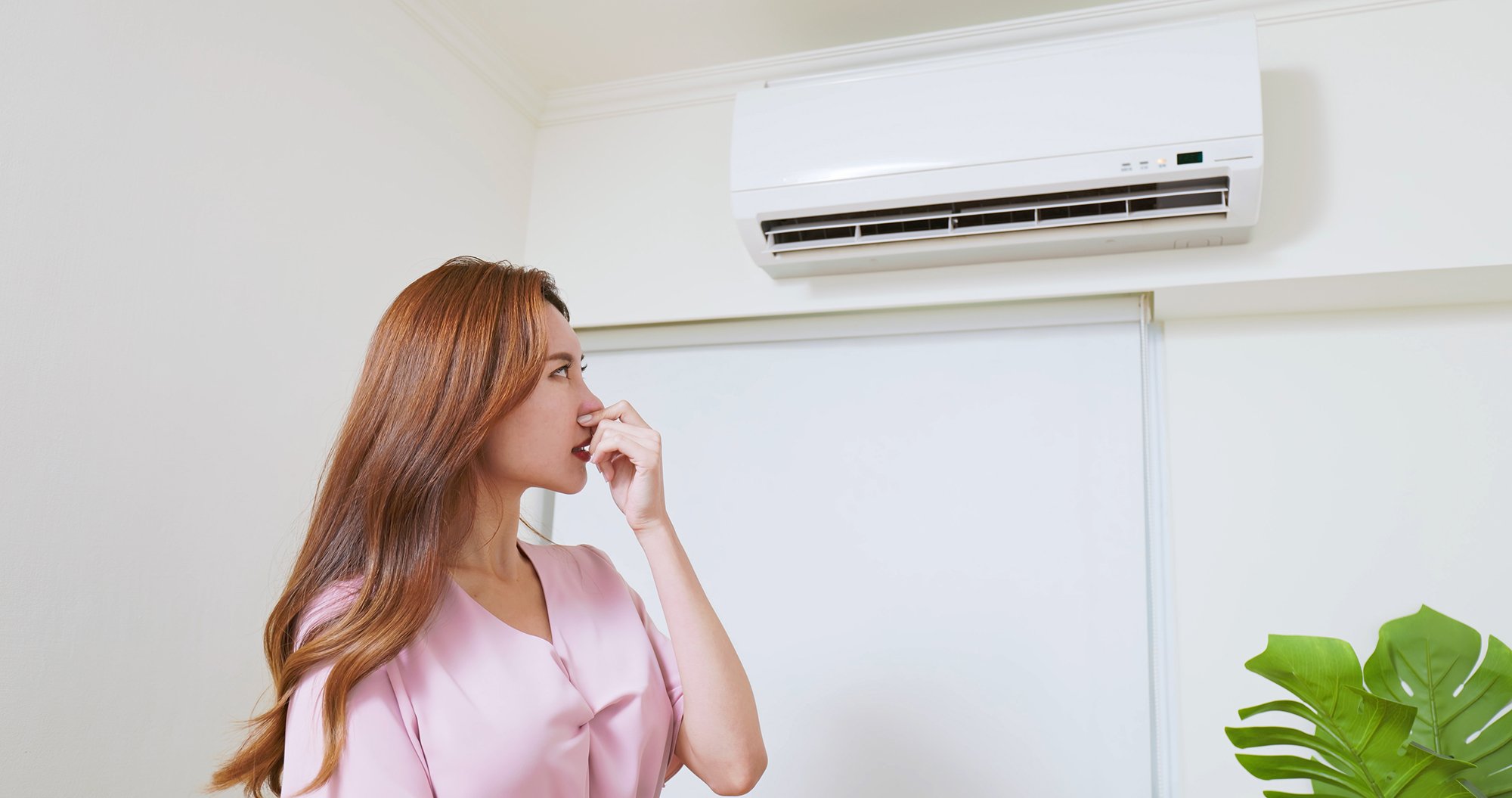6 Toxic Air Conditioning Smells and What They Mean
Why does my AC smell? Your HVAC system may need service or a little attention. When your central air conditioner starts emitting strange odors, it’s never a good sign and could indicate an issue with your HVAC unit that needs to be addressed for both efficiency and health reasons.
Even worse, some smells are toxic, and require urgent attention. It’s in your best interests for health reasons.
The air conditioning unit in your home is one of the most-used appliances, and it’s inconvenient and uncomfortable when it isn’t working properly. Fortunately, it’s pretty good about giving signs when it is in need of service.
One of the key things that many homeowners notice is bad aromas coming from the unit. An odor problem doesn’t necessarily mean that the repair will be expensive. It could be a dirty air filter or condensation which has created mold in the unit.
Potentially toxic smells coming from your air conditioning unit include:
Burning, Electrical, or Gunpowder Smell? Here’s What It Means
If your AC smells like burning plastic, gunpowder, or has an electrical odor, it could indicate a wiring issue or a failing fan motor. If the smell is faint and disappears within 30 minutes of first use, it’s likely just dust burning off. However, if the odor persists, turn off your system immediately and call an HVAC technician to avoid fire hazards.
Rotten Eggs
If your AC smells like rotten eggs or sulfur, evacuate your home immediately—this could indicate a gas leak. Natural gas is odorless, but providers add a sulfur-like scent for safety. Open your windows, leave the house, and call your gas company right away.
While low-level exposure is not hazardous to your health, high levels reduce oxygen in the blood and can lead to loss of consciousness and death.
Gas is also highly flammable and explosive, resulting in dozens of deaths each year. If you notice this smell, open the windows to your home right away, get out of the house immediately, then call the gas company. The gas company will turn off your gas supply and inspect the leak.
Exhaust Fumes
Even in systems not powered by gas, exhaust fumes can still result if fluids leak from essential components. To avoid a dangerous situation, have your system professionally assessed. Burning oil and other fluids can release large amounts of toxic gases, different in chemical makeup than in natural, liquid form. These particulates can be hazardous to your health, depleting oxygen and resulting in an array of health issues.
Chemical Aroma
If your air conditioning smells like chemicals, paint thinner, or acetone, it may indicate a refrigerant leak. Inhaling refrigerant can be harmful, so if you detect this odor, turn off your AC and contact an HVAC professional immediately.
You may need air conditioning services to rule out these different possibilities.
Musty Smell or Moldy Smell
If your air conditioning smells musty, mold or mildew buildup is the likely culprit. Excess condensation in your system can create the perfect environment for mold to grow, especially if the drainage system isn’t working properly. An HVAC technician can locate the source of the issue and ensure it doesn’t return.
Note: Mold and mildew smells are not serious problems with the unit, but the poor air quality does increase the risk of respiratory infections in both children and adults. You can still use the unit while you’re waiting for repairs, but you shouldn’t put it off for the sake of your family’s health. We offer 100% customer satisfaction.
When troubleshooting the smell, use your other senses as well such as hearing and sight. Listen for any clunking or knocking coming from your unit or your duct work. Look for excess water on the ground or other liquids, which will be out of the normal.
Many times the smells, such as when your air vent smells musty, do not indicate immediate danger. Smells are often indicative that your system needs service. However, some smells, like rotten eggs or gas are more serious and can be hazardous to your health.
If you are experiencing an electrical, burning odor, or gas smell, turn off the unit and call your HVAC technician right away. A customer service HVAC repair technician can answer, "Why does my AC stink?" with an on-site evaluation and recommend solutions as well.
Q&A: Common Air Conditioning Smells and What They Mean
Q: Why does my air conditioning smell musty?
A musty AC smell is usually caused by mold or mildew buildup due to excess condensation. If moisture isn’t draining properly, it can escape into the ducts, leading to mold growth. Regular maintenance and cleaning your system can help eliminate musty odors.
Q: What does it mean if my air conditioning smells like cigarette smoke?
If your air conditioning smells like cigarette smoke, it could be due to lingering tobacco residue in the filters or ducts. Over time, air moving through the system can pick up these particles and spread the smell throughout your home. A deep cleaning of your filters and ductwork can help eliminate this odor.
Q: Why does my air conditioning smell like wet dog?
A wet dog smell coming from your AC is often caused by bacteria or mold growing in the system. Moisture buildup in the ducts or on the evaporator coils can create the perfect environment for bacteria to thrive. Cleaning the coils and using high-quality air filters can help reduce these odors.
Q: What does air conditioning Freon smell like?
Freon (refrigerant) is typically odorless, but some homeowners describe a faintly sweet or chemical smell when there’s a leak. If you suspect a refrigerant leak, it’s important to call an HVAC professional, as exposure to refrigerants can be harmful.
Q: What does air conditioning refrigerant smell like?
Refrigerant leaks can sometimes have a chemical or slightly chloroform-like scent. If you notice this smell and your AC isn’t cooling properly, contact a professional immediately to inspect for leaks and ensure your system is functioning safely.
Q: Why does my air conditioning smell like rotten eggs?
If your AC smells like rotten eggs or sulfur, you could have a natural gas leak. Although natural gas is odorless, utility companies add a sulfur-like scent to alert homeowners of a potential leak. If you notice this smell, evacuate your home immediately and call your gas company.
Q: Is an acetone smell from air conditioning deadly toxic?
If your air conditioning emits an acetone-like smell, it could indicate a refrigerant leak. While refrigerant itself is not typically deadly toxic in small amounts, prolonged exposure can be harmful. Breathing in leaked refrigerant can cause headaches, dizziness, nausea, and in severe cases, respiratory issues. If you detect this chemical odor, turn off your AC system immediately and contact a professional HVAC technician to inspect for leaks.
Q: Is an acetone smell from air conditioning toxic or dangerous?
Yes, an acetone-like smell from your AC can be dangerous. This odor may signal a refrigerant leak, which not only affects the efficiency of your system but also poses health risks. Refrigerants contain chemicals that can displace oxygen in an enclosed space, potentially leading to breathing difficulties. If you notice this smell, avoid direct exposure and seek professional AC repair services as soon as possible.
AC Smell Prevention with Routine Maintenance
Routine HVAC maintenance is the best way to prevent AC smells and breakdowns. During annual tune-ups, technicians will clean the coils, replace filters, inspect the drainage system, and check for wiring or refrigerant issues. This will ensure your AC runs efficiently and odor-free."
By having an annual service, you have peace of mind that you’ve done what you can to make sure your central HVAC unit is ready for the seasons ahead.
Some of our heating and AC services include:
New Installation of Heating and AC systems
Programmable Thermostat installation
Air cleaners and air purifiers
Comfort systems for “Total Home Comfort”
Great techs and HVAC professionals
Ductless split systems and full heating and air systems.
HVAC maintenance and safety inspection



